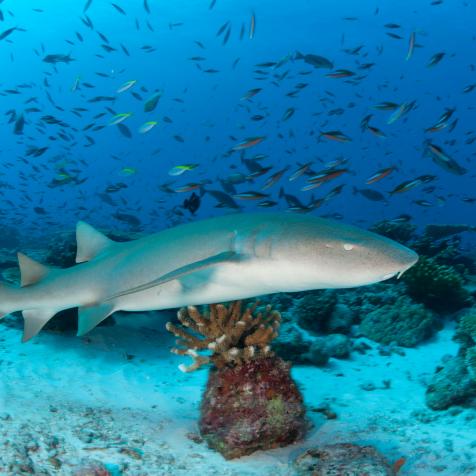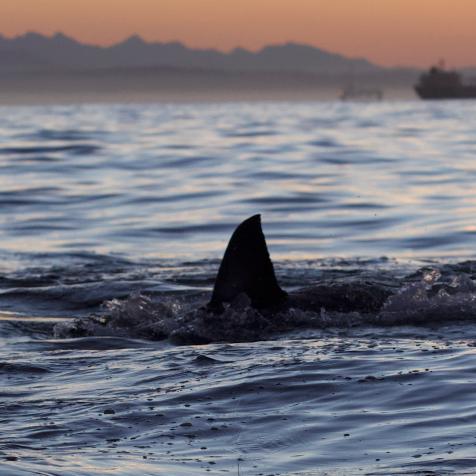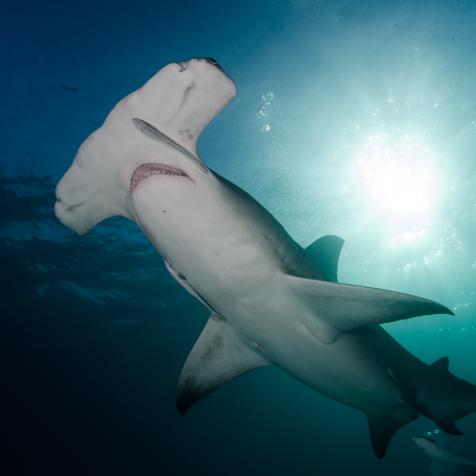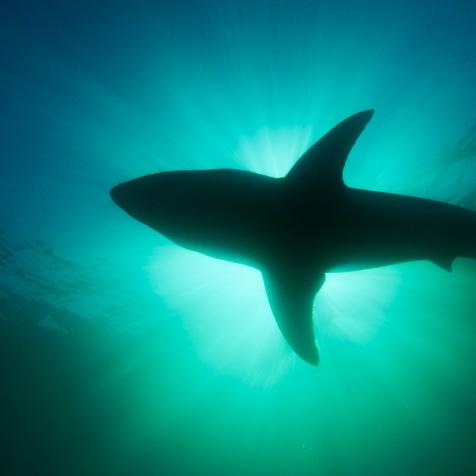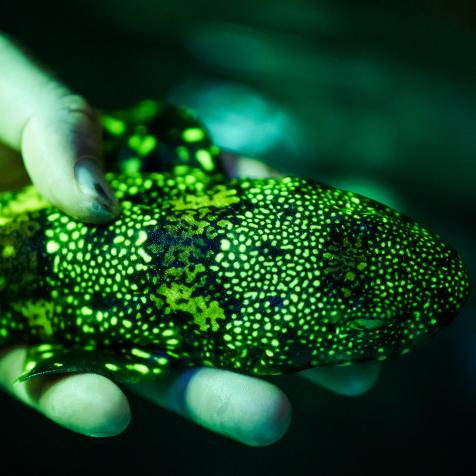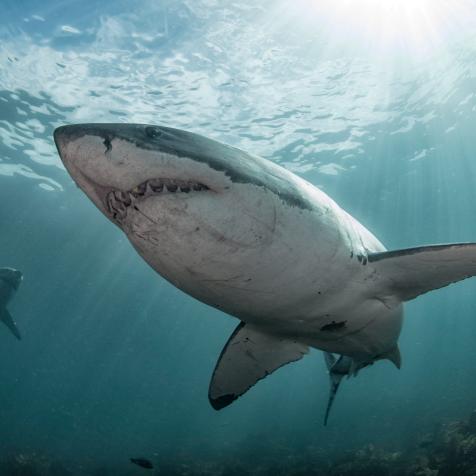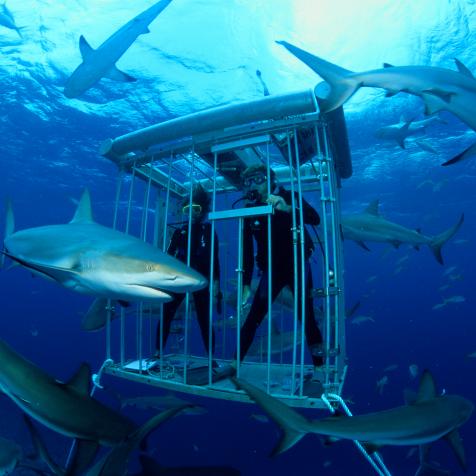
iStock/lilithlita
Declining Shark Populations Means Fat Fish
With the shortage in sharks, other fish and squid are growing larger in size from feasting on energy-rich items.
It's common knowledge that humans are getting fatter–66% of Americans, for example, are overweight. But we're not alone. Fish are also seeing an expanding waistline, at least where shark populations have been depleted.
The key, according to researchers studying the fish behavior in two Australian reefs, is fear.
Scientists discovered that where sharks were plentiful, fish attempted to avoid becoming dinner by sticking close to the reef. When brave enough to leave their shelter at all, the fish fed on low-calorie invertebrate neighbors such as crabs. In general, with the risk of being attacked high, fish lay low, eating -- and even mating -- less.
The result? Skinny (and stressed-out) fish.
In contrast, where sharks were in short supply, the carefree fish ventured into the more exposed water column to feast on the energy-rich items found there, such as other fishes and squid. Without the worry of (or competition from) large predators, fish chowed down ... gained weight as a result.
How much weight? Researchers from the University of Western Australia and the Australian Institute of Marine Science found that the fish living in Scott Reef, where sharks are legally fished, weighed eight to 28 percent more than fishes of the same species at Rowley Shoals, a remote marine reserve that protects sharks.
Now, unlike in the case with humans, an individual fish is actually BETTER OFF fat. Overweight fish produce more offspring and have better survival rates than thinner fish, and they're probably less freaked out, too.
But what's good for the fish isn't necessarily what's good for the reef. We don't know the long-term impact to coral reefs -- and overall ocean health -- without sharks to keep fish populations in check. Most studies conclude that large marine predators are key to maintaining ecological balance.
In the meantime, party on, Scott Reef fish.









